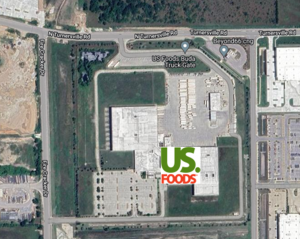By Moses Leos III
Ever since he brewed his very first stout at home seven years ago, Marc Woffenden has “pretty much been hooked” on brewing his own beer.
“It turned out much better than I thought it could have,” Woffenden said of the first batch he ever made. “I then grabbed every single book or article (on brewing) to immerse myself in the brewing process. “
But what was a hobby could soon grow into a full business venture as Woffenden and his wife, Alexis, plan to open Buda’s first microbrewery, Two Wheel Brewing Company, at 535 South Loop 4.
While the two continue to work through the permitting process, Woffenden said they’ve gained the support from city staff.
“They were very open to (a brewery) and excited about it,” Woffenden said. “Meeting with different people in Buda, everyone seemed open to having a brewery there.”
The two plan to open a 5,000 square foot facility. Approximately 3,800 square feet will be dedicated for production. The remaining 1,200 square feet will feature a taproom.
Chance Sparks, Director of Planning in Buda, said Two Wheel’s site development permit is currently under review. He said the city expects to complete it as the Woffenden’s respond to small changes on their plans.
He said in an emailed response that they haven’t applied for their building permit, but expects for them to submit it upon completion of architectural drawings.
According to Woffenden, installing a taproom was done to mimic the setting other breweries have employed. He said they are working to find out the hours they can keep the taproom open.
“We want to do a good amount of business in the taproom so customers can buy beer from us,” he said. “We want to make the place a destination where we can hold tours and people can enjoy the beer.”
Opening a microbrewery was the goal for Woffenden when he “started to get serious” about brewing in 2013. It was then he attended the American Brewer’s Guild in Vermont to learn more about the brewing process.
For Woffenden, the “biggest eye opener” was the difference in brewing in small scale, as opposed to large scale on a big system. However, he also learned “the process is still the same, whether you’re brewing 10 gallons or 10 barrels.”
It wasn’t until he took an Intensive Brewing Science and Engineering course that opening a brewery took shape. It was in the Brewery and Planning phase where he learned what it took to open a brewery – a venture he estimates could cost upward of half a million dollars.
Once he graduated and returned to Texas, Woffenden began seeking locations for his new business. His wife, who Woffenden said has “been very supportive since the very beginning,” joined him.
But the two ran into issues when they looked in Austin. All the locations they liked had buildings that the two would then have to “retrofit” for their needs.
They soon noticed more breweries were looking outside of Austin; Woffenden followed suit. After speaking with Economic Development Corporation Executive Director Ann Miller, the two ultimately began the process of settling in Buda.
According to Sparks, the project has followed the city’s regulations for building within a property zoned light industrial He also said the project also falls within Texas Alcoholic Beverage Commissions rules on microbreweries.
Once built, the Woffenden’s plan to brew a variety of ales – from pale ales to German and British style.
They also harbor the idea of distributing to local bars and restaurants.
“Obviously, we don’t think we can do enough business to sell beer by pint to do what we need to do,” Woffenden said.
Sparks welcomed the brewery, saying it would be an asset to the city based on its location.
“Microbreweries are part of a growing emphasis on unique, local products in tourism that many communities throughout the region, state and nation have leveraged to raise the community profile,” Sparks said in an emailed response.
Equally excited was Tavern on Main owner Julie Renfro, who has advocated for more business located near the downtown corridor.
In addition, she said the location of Two Wheel could help “expand the boundaries of what downtown Buda is.”
Having a hyper local presence for beer was also a key factor, primarily for distribution.
“The more local the product, the more likely I’m going to look at it and taste it to see if I want to sell it (to my customers),” Renfro said.







